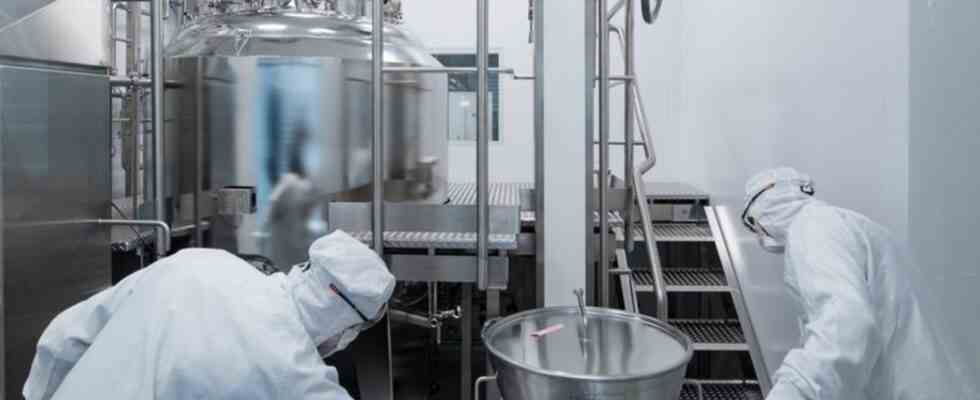pharmaceutical industry
Collective bargaining talks: the chemical industry is aiming for a “bridging solution”.
The chemical and pharmaceutical industry is aiming for the first large-scale collective bargaining agreement in Germany this year. Photo: Hendrik Schmidt/dpa-Zentralbild/dpa
© dpa-infocom GmbH
The high energy prices hit workers and companies. In the chemical industry in particular, a compromise on appropriate wage increases is difficult. Is it initially going to be a temporary solution?
Due to the high inflation and uncertainty caused by the Ukraine war, the collective bargaining talks for the approximately 580,000 employees in the chemical and pharmaceutical industry are only heading towards a partial conclusion for the time being.
At the start of the nationwide round in Hanover, the negotiators on the employee and employer side indicated their willingness to find a “bridge solution”.
Nothing has yet been announced about specific figures or precise compromise lines. It would be conceivable, for example, that a basic package initially contains moderate wage increases – covered with one-off payments and bonuses or a temporary lower permanent wage increase. Certain additional points could then be renegotiated later if necessary.
High raw material costs due to the Ukraine war
The union IG BCE had originally demanded a deal above the rate of inflation. In February, consumer prices in Germany rose again, by 5.1 percent compared to the same month last year. Since the Russian attack on Ukraine is driving up raw material costs, many economists believe this trend could continue.
IG-BCE Vice President Ralf Sikorski said at the start of the negotiations with the Federal Chemical Employers’ Association (BAVC): “Due to the work of Mr. Putin, we have inflation rates whose sense of reality must be checked.” The companies also referred to increased costs.
According to the employees, the increasing financial burden for a number of companies must be taken into account. However, Sikorski emphasized that it was not possible to postpone the entire collective bargaining round with him. Some of the pay increases must be “real, now,” he demanded. “We now need a result for our colleagues, at least a partial result. And then you can build bridges into autumn.”
Hans Oberschulte, as the employer’s chief negotiator, was in principle open to such a procedure. “We have to consider which part of the burden we can expect companies to have permanently and which part can possibly only be temporary.” However, he makes it clear: “An inflation rate that largely arises from a temporarily overheated situation must not be the basis for a tariff increase that we have permanently for all future in our corresponding table fees.”
First major collective bargaining agreement in 2022
The chemical and pharmaceutical industry is aiming for the first large-scale collective bargaining agreement in Germany this year. In regional exploratory meetings, there has not been any significant rapprochement – also because the difficult situation has worsened again with the war. Many companies worry about locations and supply chains. The chemical industry is more dependent than almost any other branch of the economy on a stable supply of oil, gas and hydrocarbon precursors.
On the other hand, the employees want to secure their purchasing power. With regard to Ukraine, Sikorski admitted: “We have been in a completely different situation since February 24.” He therefore suggested drawing up a basic agreement that could be expanded in the autumn. To be weighed up: “What are real expectations and what is overheated at the moment? You can bring these two things together by building a bridge.”
Employer negotiator Oberschulte also spoke out in favor of a step-by-step solution “in the event of a possible bridge construction”. It must be clear that instead of a number of “four percent plus x”, “four percent minus y” should come out. However, an agreement is possible: “I am optimistic that in the end we will get a result that both sides can support.” Irrespective of this, the following applies: “There has never been collective bargaining in a larger industry while there is a war in the middle of Europe. This is completely new.”
Both sides also want to talk about training and other topics. The first round in Hanover is scheduled to continue on Tuesday.

